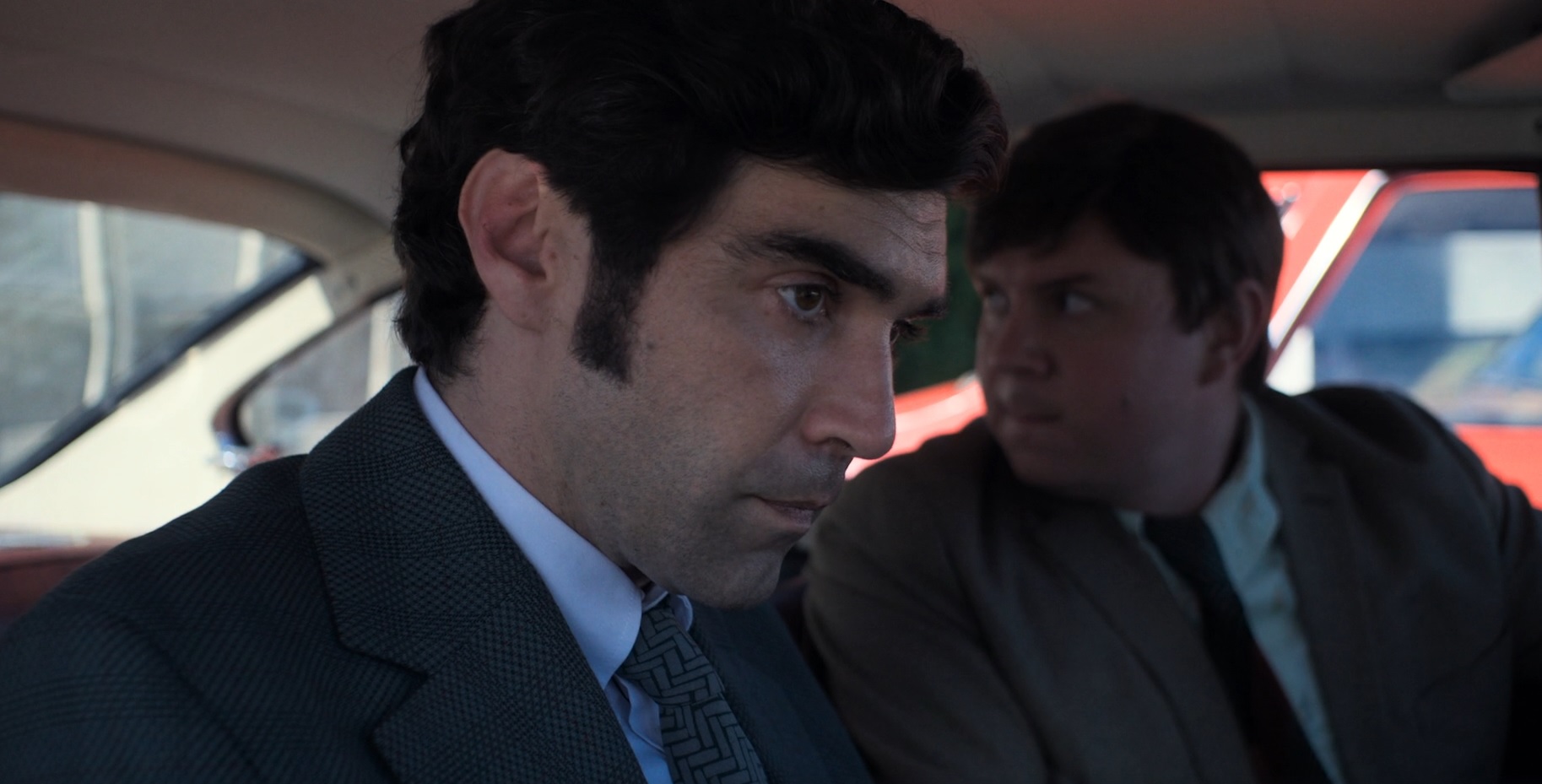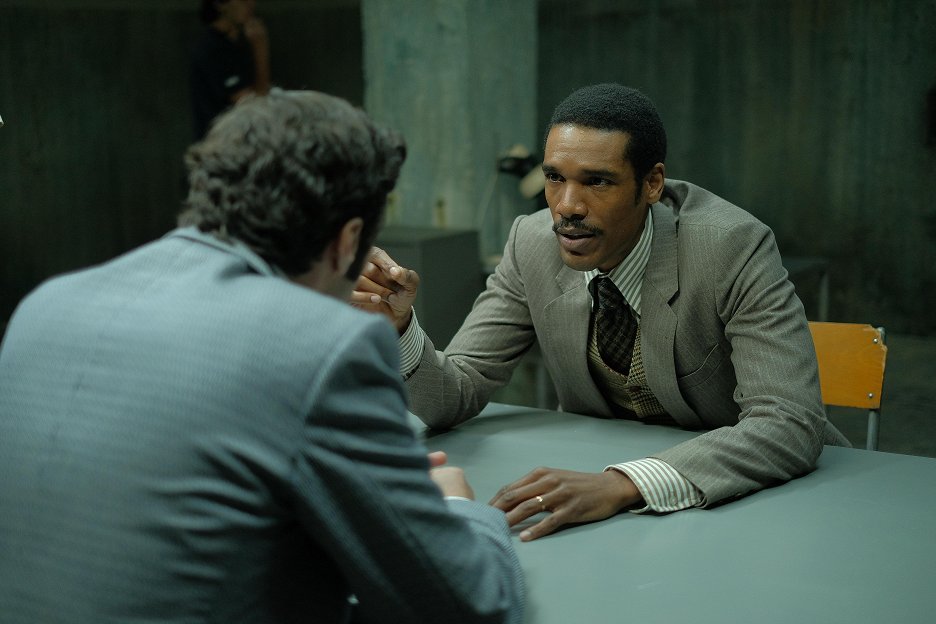Spy/Master, a drama series about the most important defection in communist Romania
Watercooler Shows, the trending series that everyone talks about the next day at the office, around the water cooler. Watercooler Wednesdays seeks to be a (critical) guide through the VoD maze: from masterpiece series to guilty pleasures, and from blockbusters that keep you on the edge of your couch to hidden gems; if it leads to binging, then it’s exactly what we’re looking for.

Spy/Master (Adina Sadeanu & Kirsten Peters, 2023)
I should start by saying that Spy/Master would not have been this month’s recommendation had it not been a Romanian series. At the same time, had it not been a Romanian series, its shortcomings might not have been as obvious and disappointing (proof is the rather laudatory international reviews received so far and the selection in the newest competition section of the Berlinale ).
At the end of the six episodes (the first two have already been released; thank you, HBO, for kindly making the whole series available to us), I would say it’s a tie score, or as the nostalgics of the old regime would say: he did things, sir, whereas the guys in charge now can’t even paint how much Ceaușescu built. Spy/Master works on this very model: it builds an admirable and complex scaffolding, but it doesn’t quite get to paint anything because it gets bogged down in the construction.

Nostalgia is the key word here, from the visible aspects (recreating the ’70s, in terms of story and production design) to more subtle cinematic elements: recreating a certain aesthetics of the slow-burn spy thriller, without explosions and assassinations at every turn, and without invincible and glamourized operatives à la 007.
Let’s look at the real inspiration for this story about a high-ranking official in Romanian intelligence who defects to the Americans: Ion Mihai Pacepa. Four-eyes, small, shabby – in the best pictures of him available online, the former Securitate general could pass for a harmless university professor. And yet, Pacepa remains in history as the most important defector from the socialist East to the capitalist West. Spy/Master unfolds stylistically on the same contradiction between what we see and what we expect to see (expectations derived from the conventions of the genre). It’s a commendable bet despite the shortcomings that become more and more obvious along the way.

Pacepa’s avatar here is named Victor Godeanu, a character for whom Alec Secăreanu seems to have dialed down his sex appeal, “as to become a very serious spy”. It’s hard to imagine a Romanian-speaking leading man who could pull off those sideburns better than Secăreanu does, but he certainly got the “serious spy” part right, sometimes even too well for the credibility of the character. Victor Godeanu is Nicolae Ceaușescu’s adviser and right-hand man, acting chief of his foreign intelligence service, a parliamentary undersecretary at Romania’s Ministry of Interior, KGB agent, and bootlegger – an inflation of functions and titles so typical of the old regime, but Godeanu takes all his jobs seriously. The entire elite, including Elena Ceaușescu, feasts on his diplomatic seal bootlegging, but being in cahoots with the foreign agencies is treason that calls for the ultimate punishment (Pacepa was sentenced to death twice).

When counterintelligence starts sniffing around and bodies start piling up, his KGB bosses decide to extract him. But Godeanu has other plans: sent to West Germany to negotiate the trade of ethnic Saxons, the local spymaster offers his services to the CIA attaché in Bonn, Frank Jackson. Played by Parker Sawyers – whose striking resemblance to Obama haunted me incessantly until I realised he had played the president in a film shown at Sundance – the American spy is the closest portrayal of a “good guy” in a story that doesn’t concern itself too much with moral judgments. What follows is the classic “game of chess” seen in spy thrillers, where each character plays several matches simultaneously; and in its elevated variations (as Spy/Master aspires to be), these individual matches trigger outcomes on a larger geopolitical board, and the moves are always made by someone else’s hand.

The clever construction of this chessboard – the real historical coordinates that intersect to make Godeanu’s life difficult (albeit their chronology is tweaked a bit for dramatic effect) – is the strong point of the miniseries, but it’s also an unfulfilled promise. Firstly, because the overcrowding of services per square meter becomes difficult to keep in check even for a knowledgeable audience, but above all it becomes implausible.
Secondly, the aesthetic I was talking about earlier, of non-actions that advance the plot (failed surveillance, unspectacular off-screen assassinations, secret meetings, veiled threats, the general cat-and-mouse game), must culminate in something eventually. By the time Spy/Master gathers its forces for the big boom, the whole aesthetic actually implodes, from conception to execution: I can’t shake the feeling that the show was supposed to be longer, but they ran out of budget.
Spy/Master is available on HBO Max.
Film critic and journalist, UNATC graduate. Andrei Sendrea wrote for LiterNet, Gândul, FILM and Film Menu, and worked as an editor on the "Ca-n Filme" TV Show. In his free time, he works on his collection of movie stills, which he organizes into idiosyncratic categories. At Films in Frame, he writes the Watercooler Wednesdays column - the monthly top of TV shows/series.
